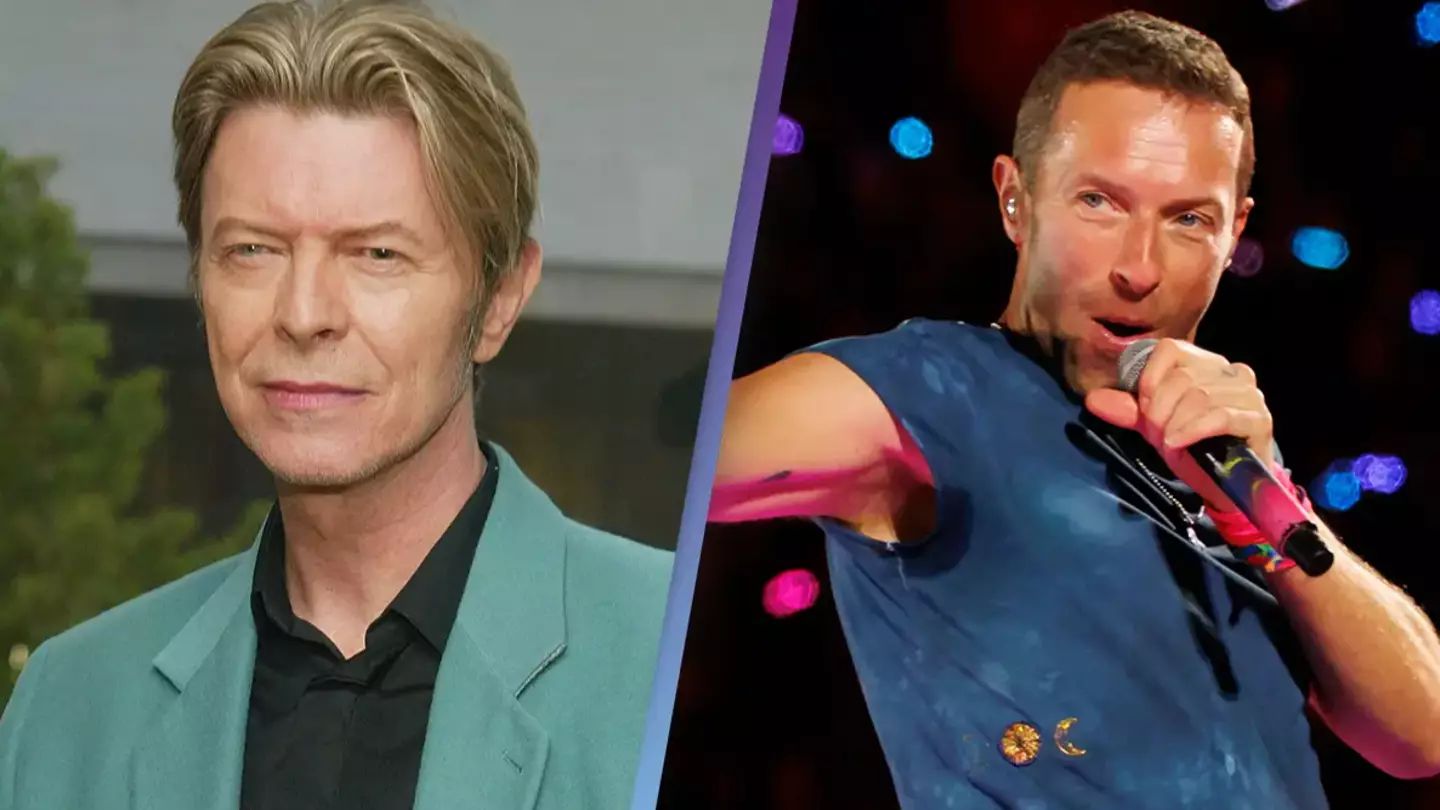A collaboration between Coldplay and music icon David Bowie sounds like a dream come true for fans, but it almost happened—and was firmly shut down by Bowie himself. Despite Coldplay’s massive success with their 2008 album Viva la Vida or Death and All His Friends, which went on to sell over 6.8 million records in its first year, Bowie declined their invitation to work together, delivering a candid critique that has become legendary.
Here's ads banner inside a post
Coldplay’s Vision for a ‘David Bowie-Type Character’
Coldplay’s frontman, Chris Martin, envisioned Bowie as the perfect fit for their track “Lhuna,” which appeared on the 2008 album. The song, a dreamy narrative about a character fantasizing over a woman named Lhuna, seemed to demand the unique flair Bowie was famous for. Martin and the band wanted Bowie to embody the role of a “David Bowie-type character” to bring the song to life. Hoping to land the man himself, Martin personally wrote to Bowie, extending the invitation to collaborate on what Coldplay hoped would become a standout track.
Bowie’s Response: A Brutally Honest Rejection
While Coldplay fans might have dreamed of hearing Bowie’s voice alongside Martin’s, the legendary artist wasn’t impressed with the offer. Bowie’s response was blunt and, in hindsight, almost comically forthright. According to Coldplay drummer Will Champion, Bowie shot down the idea with a simple, cutting remark: “It’s not a very good song, is it?”
Martin echoed this sentiment in an interview, recalling a phone call from Bowie where the rock icon doubled down, saying: “It’s not one of your best.”
Here's ads banner inside a post
For Coldplay, the rejection wasn’t personal—it was simply Bowie being Bowie. Champion later reflected on the incident with admiration for Bowie’s integrity, saying: “He was very discerning—he wouldn’t just put his name to anything. I’ll give him credit for that!”
Coldplay’s Success Without Bowie
Despite the rejection, Coldplay didn’t hold a grudge, nor did it hinder the success of Viva la Vida or Death and All His Friends. The album became the top-selling global release of 2008, with hits like “Viva La Vida,” “Lovers in Japan,” and “Violet Hill.” While “Lhuna” may not have gained the same level of acclaim, Coldplay’s star power carried the album to commercial and critical success.
Bowie’s absence on the track may have left fans wondering what could have been, but his critique likely served as a testament to his uncompromising dedication to artistry. The rejection only cemented Bowie’s reputation as a meticulous and principled artist who wouldn’t lend his name or talent to something he didn’t believe in.
Here's ads banner inside a post
A Tale of Respect and Resilience
The story of Bowie’s rejection became a memorable anecdote following his death in 2016, as Coldplay reflected on his legacy. While some artists might have been offended by such candid feedback, Coldplay took it in stride, respecting Bowie’s high standards. In an era when collaborations can often feel forced or overly commercial, Bowie’s decision underscored his commitment to quality over convenience.
For fans of both Coldplay and Bowie, the missed opportunity is bittersweet. While we’ll never know what “Lhuna” might have sounded like with Bowie’s touch, the story highlights the human side of artistic collaboration—where not every idea works, and not every dream comes true.
Bowie’s Legacy and Coldplay’s Continued Evolution:max_bytes(150000):strip_icc():focal(749x0:751x2)/coldplay--76-10072024-9d4d2782bf8a42538b11af9bcae796fc.jpg)
David Bowie’s rejection of “Lhuna” didn’t stop Coldplay from reaching new heights in their career, and the band’s willingness to share this anecdote shows their humility and respect for one of music’s greatest legends. Bowie’s critique is a reminder that even the most successful artists face setbacks—and that those moments can shape their growth.
Coldplay has gone on to deliver countless hits and evolve their sound over the years, cementing their status as one of the biggest bands in the world. Bowie’s legacy, meanwhile, remains untouchable, with his refusal to compromise on his art serving as a lesson for generations of musicians.
The story of Bowie and Coldplay is ultimately one of mutual respect, artistic integrity, and the pursuit of greatness. Even without Bowie’s involvement, Coldplay’s journey with Viva la Vida stands as proof that sometimes, rejection can be the fuel for success.

